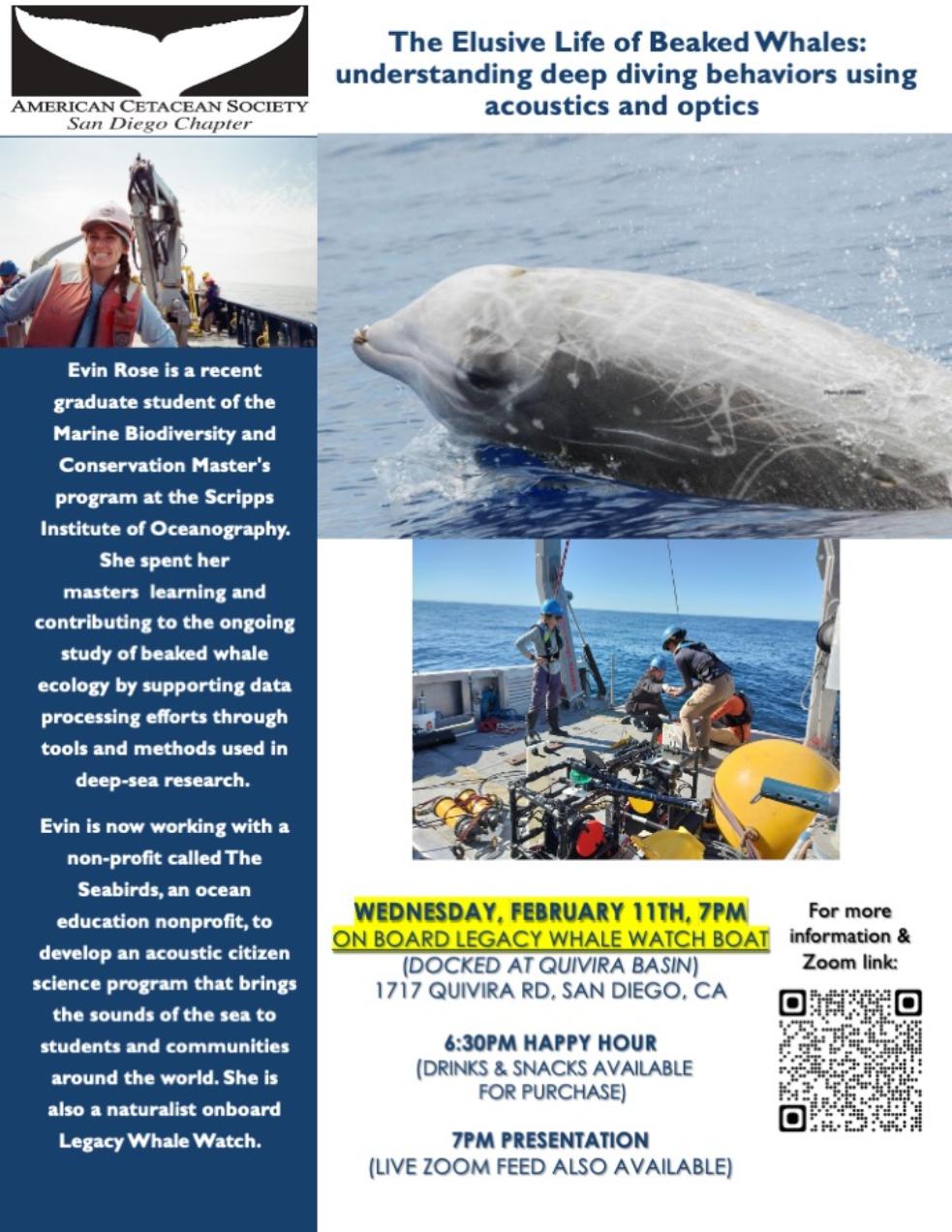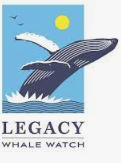


Meeting ID: 857 7434 1084
Passcode: Whales
Information About Attending In Person Aboard the Legacy
Before the presentation, join us for Happy Hour aboard the Legacy at 6:30 PM. You can enjoy snacks for $3, as well as a selection of beer, wine, and canned cocktails priced between $5 and $9.
Location wise, we'll be at the Legacy Whale Watch (sdwhale.com) 1717 Quivira Rd, San Diego, CA 92109, behind the Seaforth Sportsfishing building. Be sure to arrive early because we have someone waiting at the dock gate to let you through.
Parking will be available at 1717 Quivira Rd. (Seaforth Sportsfishing parking lot) or out on 'Quivira Rd where designated. Pleasenote that the neighboring businesses on either side of the Legacy parking lot are towing aggressively, so don't park in Seaforth Boat Rentals, Seaforth Marina, Marina Village parking lots, or risk being towed. Parts of their parking lot are marked for permit parking, so be sure to look for those posts.